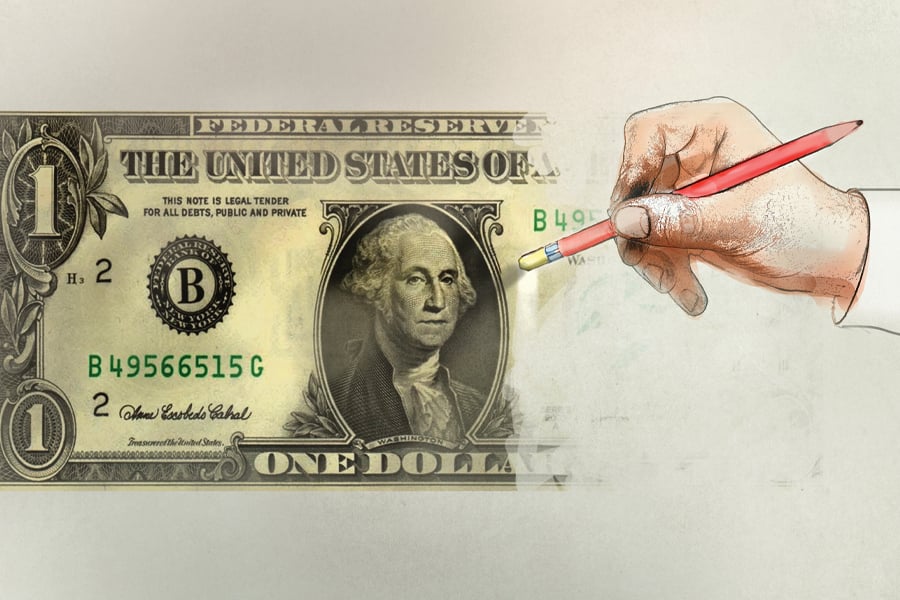

The industry is coming off a few relatively strong years and therefore as a group appears to be in better shape than it was in following the credit crisis 12 years ago. That era saw dozens of poorly capitalized, small to midsize independent broker-dealers fail as the result of legal liabilities related to their sales of high-risk alternative investments. In an effort to slash risk, large insurance companies sold broker-dealers.
In 2019, the 25 largest independent broker-dealers reported $26.2 billion in revenue, an increase of 8.3% from 2018, when those same firms reported $24.2 billion in revenue, according to InvestmentNews Research. Historic returns over much of the past 20 years have seen the leading 25 firms as a group report revenue growth of close to 10%.
But the IBD industry, which has been in the throes of consolidation since the 2008-09 credit crisis, should expect more hard times and retrenchments in 2020 as a result of the fallout from the coronavirus pandemic.
That fallout includes a decrease in firm revenues as a result of declining levels of assets, with the Dow Jones Industrial Average falling 28% from its recent record high in February. The industry has been steadily moving to charging clients fees based on assets rather than transactions, so its exposure to a downturn is greater than it was a decade ago. And net income will take a hit as a result of last month’s move by the Federal Reserve to reduce short-term interest rates by 50 basis points, slicing the spread that firms generate on clients’ cash deposits.
That will be a double whammy for many broker-dealers, executives said.
“In a crisis, the well-capitalized and well-run businesses always do better,” said Mark Casady, former CEO of LPL Financial and now the general partner at Vestigo Ventures, an early stage venture capital shop focused on fintech. “There will be a flight to quality in IBDs and in custodians. This happened in the 2008 crisis and will concentrate the industry even further, which is long overdue.”
The term ‘independent broker-dealer’ reflects the fact that firms’ brokers and financial advisers are paid as independent contractors. That’s in contrast to the big bank wirehouses, which compensate their advisers as employees. The reps who work at IBDs capture a higher percentage of revenues per dollar generated, but also wind up paying more for expenses such as rent and staff.
“Removing the cash spread is painful for an IBD that is not self-clearing,” Casady said. “Those earnings are now gone, especially in light of the cut of trading fees started by Schwab.”
The income involved is meaningful. LPL Financial, the industry bellwether, reported $59 million in interest and other income last year, up from $48 million a year earlier, according to a January presentation.
Firms are already reporting declines in assets. Raymond James Financial Inc., which has a variety of platforms for advisers, including a large independent broker-dealer, on March 23 said client assets under administration in its private client group fell 5% over the four weeks of February as the COVID-19 virus began its spread in the United States.
It’s not all bad news for IBDs’ potential sales this year, however. Market volatility can be a plus for broker-dealers. Firms generate revenue from trading commissions, although those are under pressure given that discount brokers recently cut the price of some trades to zero, executive said. And brokers and financial advisers are undoubtedly rebalancing clients’ stock and bond portfolios as the market dives and climbs.
Large independent broker-dealers, many of which are owned by insurance companies, could also benefit this year from an increase in sales of annuitized products such as variable and fixed annuities, executives said. The sharp decline in the market in March could drive investors into products that put caps on investor gains and losses and might be more popular in the wake of such shocking market volatility.
Financial advisers, many of whom have small-business owners for clients, will be working to understand the various federal stimulus packages emerging from Washington that provide billions of dollars of aid for such businesses.
“Small-business owners in particular will feel this impact,” said Evamarie Schoenborn, CEO and president of Northwestern Mutual Wealth Management. “Our advisers will be helping clients think through their options.”

The proposed $120 million settlement would close the book on a legal challenge alleging the Wall Street banks failed to disclose crucial conflicts of interest to investors.

Sue Quackenbush brings more than 25 years of leadership experience to "align people strategies with a growth-oriented culture" at Envestnet.

The Democrat from Massachusetts is pushing the retirement plan giant to explain how it would protect participants from risks linked to private markets.

More than one-third of small business owners plan to sell in the next year, as inflation concerns and tariff pressures compound exit planning gaps.

The move to charge data aggregators fees totaling hundreds of millions of dollars threatens to upend business models across the industry.
Orion's Tom Wilson on delivering coordinated, high-touch service in a world where returns alone no longer set you apart.
Barely a decade old, registered index-linked annuities have quickly surged in popularity, thanks to their unique blend of protection and growth potential—an appealing option for investors looking to chart a steadier course through today's choppy market waters, says Myles Lambert, Brighthouse Financial.
